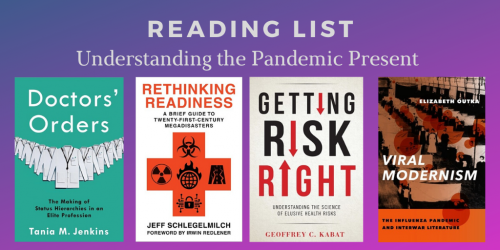Michelle Obama and Epidemiology: An Inspiring Example
“American children can learn from someone like Michelle Obama, who decides on the basis of scientific evidence, not on mere speculation.”—Alfredo Morabia
The following post is by Alfredo Morabia, author of Enigmas of Health and Disease: How Epidemiology Helps Unravel Scientific Mysteries
In her May 28th New York Times op-ed, The Campaign for Junk Food, Michelle Obama offers a lesson to Congress and an inspiring example to American children. She explains that before she began advising on policy to reduce child obesity, she first looked to “what works”.
“What works!” because, as Michelle Obama writes, “when we rely on sound science, we can actually begin to turn the tide on childhood obesity.”
Today, Michelle Obama can stand in front of children who may ask her about the importance of fruits and vegetables, less salt, etc. for a healthy diet. She can explain that kids from schools in which lunch menus have slashed sugar, salt, and fat are healthier compared to kids from schools which keep offering junk food; that kids from neighborhoods without nearby grocery stores have poorer eating habits compared to kids from areas with fresh-food retailers; that kids who go to child care centers offering healthier food and more physical activity acquire healthier habits compared to kids who don’t. She can also state that after reducing access to junk food, there is less obesity compared to the situation before the launching of the Let’s Move initiative. It worked!
Now contrast the example of Michelle Obama’s to that of Congressmen fighting the changes she is promoting in the school lunch program. These Congressmen want to see more white potatoes, less fruits and vegetables, more sodium, fewer grains on the menu, and consider pizza sauce a vegetable. How would these Congressmen respond to children asking them: “How do you know that your initiatives will not hurt our health?” The reality is that they cannot answer the question because there is no evidence supporting these decisions. They can only say that they believe otherwise, and claim their right to do so.
Policies that fly in the face of scientific knowledge are bringing our society backwards. Following epidemiologic evidence rather than individual belief was a founding act of the young United States of America. During the American Revolution, most English soldiers were immune to smallpox. American colonists, in contrast, were susceptible to it, and their regiments disintegrated when smallpox broke out. Epidemiologic studies from the early 18th century had shown that people who were inoculated smallpox under the skin were ten times less likely to die from the disease compared to people who contracted smallpox as a disease. So, in 1777 Congress followed the evidence and ordered the mass inoculation of the Continental Army. Congress overcame the defiance of rebelling colonies and army hierarchy who “believed” otherwise and smallpox ceased to be a threat to the Revolution, which could have been lost otherwise.
Today, the Congressmen who block Michelle Obama’s initiatives provide a deplorable example of people who make decisions without knowing what they are doing. In constrast, American children can learn from someone like Michelle Obama, who decides on the basis of scientific evidence, not on mere speculation.


